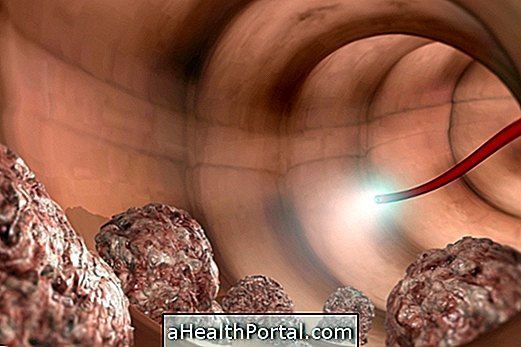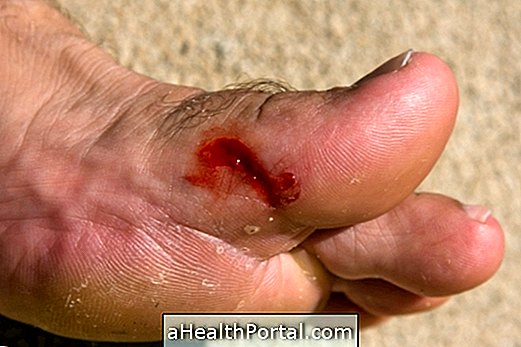Chronic diarrhea is one that arises when the number of bowel movements is greater than 3 times a day or the consistency of the stool is more softened than normal, which lasts for a period longer than 4 weeks.
There are several causes for chronic diarrhea, ranging from infections, food intolerances, intestinal inflammation, drug use or even cancer. To differentiate between the causes, the physician should make a detailed assessment with physical examination and conducting exams, such as stool evaluation or laboratory tests.
To treat chronic diarrhea, the gastroenterologist should resolve the cause, be it with antibiotics for infection, orientation of feeding adjustments or indication of immunosuppressive drugs to treat intestinal inflammation, for example.

Main causes
Some of the leading causes of chronic diarrhea include:
- Food intolerances or allergies, such as lactose or gluten intolerance, or allergy to milk protein. Check how to know if it is lactose intolerance;
- Infections, which may be parasitic, such as giardiasis, amebiasis or ascariasis, for example, as well as intestinal tuberculosis, AIDS or other infections by bacteria, viruses, fungi;
- Irritable bowel syndrome, which is a change in the functioning of the intestine, which has its motility altered. See the treatment options for people with this syndrome;
- Use of medicines with a laxative effect or excessive consumption of alcohol;
- Autoimmune bowel diseases, such as inflammatory bowel disease, caused by Crohn's disease or ulcerative colitis, or as celiac disease, for example. Understand how to identify and how to feed those who have celiac disease;
- Insufficiency of the pancreas in a chronic pancreatitis, which causes change in the absorption of fats, leading to a doughy, shiny and greasy content;
- Genetic diseases that alter the tissue of the digestive tract, such as cystic fibrosis, which alters the production of secretions in various organs;
- Intestinal cancer, which can cause symptoms like diarrhea, weight loss, fatigue and bleeding in the stool, for example. Here's how to identify the symptoms of bowel cancer.
To diagnose the cause of chronic diarrhea, you should seek a general practitioner or gastroenterologist, who can make a clinical evaluation, analyze the symptoms presented and request tests such as stool analysis, colonoscopy and blood tests, depending on each case.
Also check out the causes of diarrhea in the baby and what to do.
How is the treatment done?
To treat chronic diarrhea, the doctor may initially recommend ways to prevent dehydration or malnutrition by giving advice on how to increase fluid intake and daily food intake.
Thereafter, definitive treatment takes place according to the cause of the diarrhea, which may include use of antibiotic or deworming remedies to treat infections, removal of medications that may have a laxative effect, or medications with anti-inflammatory effects for autoimmune diseases, for example example.
What to Eat in Chronic Diarrhea
In conical diarrhea it is important to eat foods that are easy to digest and absorb, such as:
- Soups and cooked vegetable purees, which do not stimulate the gut such as pumpkin, carrot, zucchini, potato, sweet potato;
- Banana and baked or baked fruits like apple or pear;
- Rice or corn porridge;
- Cooked rice;
- White meat cooked or grilled such as chicken or turkey;
- Cooked or grilled fish.
In addition, it is essential to drink about 2 liters of liquids per day such as water, tea, coconut water or coarse fruit juices, for example. Check out, in the following video, our nutritionist's guidelines on what to eat in diarrhea:






















